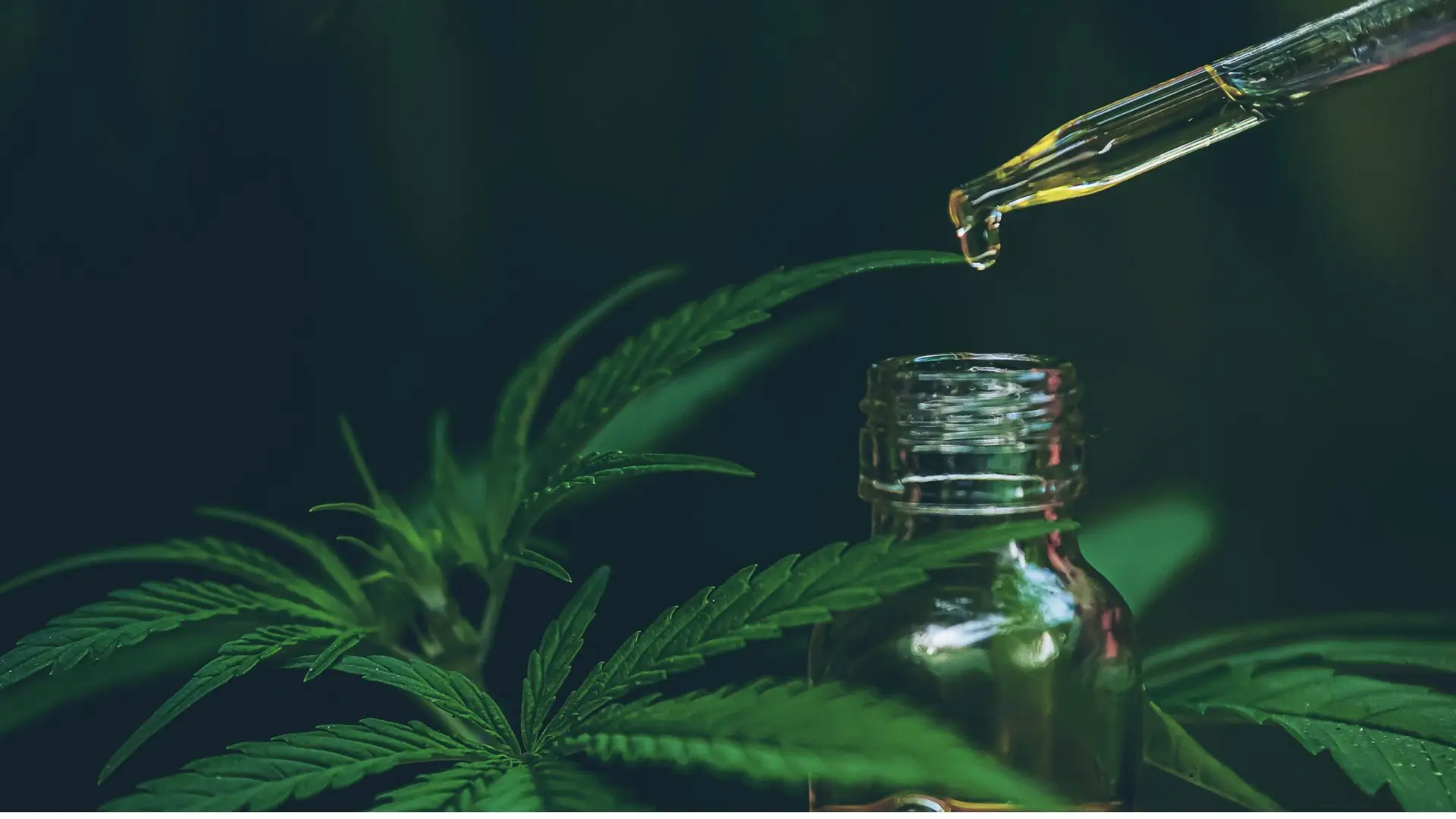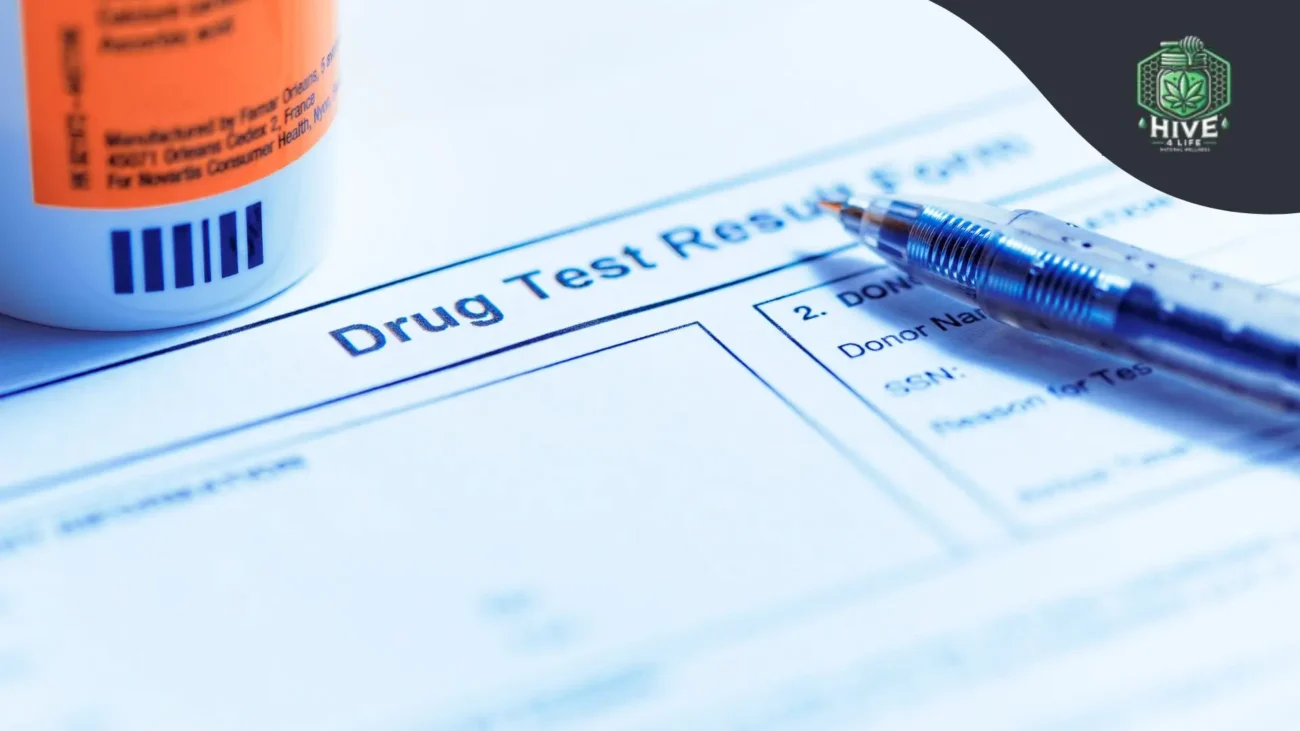How Long Does CBD Stay in Your System? CBD stays detectable in your system 2 to 5 days, though frequent users might test positive for up to 10 days or longer. This detection window surprised many CBD users, including me during my initial research on this topic.
CBD’s half-life typically ranges between 18 to 32 hours, but several factors affect its system retention time. Research shows each 100mg increase in CBD dosage adds approximately 4 more days to the detection window. The effects last anywhere from 30 minutes to 48 hours based on your consumption method – whether you inhale, ingest, or apply it topically.
This detailed guide will help you understand CBD’s retention science and testing methods. You’ll learn exactly how long CBD remains detectable in your blood, urine, and other testing approaches.
Understanding CBD Basics and Detection
CBD (Cannabidiol) is one of over 140 unique compounds scientists have found in the Cannabis sativa plant. CBD differs from THC because it doesn’t make you feel high or cause any intoxicating effects. You can find CBD in two main forms: hemp-derived CBD that has less than 0.3% THC, and marijuana-derived CBD.
Your body processes CBD differently based on how you take it. CBD moves through your digestive system and into your bloodstream after oral consumption. The liver then uses specific enzymes, CYP2C19 and CYP2C9, to change it into its active form called 7-hydroxy-cannabidiol (7-OH-CBD). CYP3A4 further processes this to create 7-carboxy-cannabidiol (7-COOH-CBD).
Vaping lets CBD skip the digestive system completely. The lungs absorb it straight into your bloodstream. All the same, whatever way you take CBD, it shows a complex pattern in your body with a plasma half-life between 18 to 32 hours.
Scientists use several methods to detect CBD and its metabolites. Urine testing leads the way as the most common method, especially for workplace drug screens. THC metabolites need specific concentrations to show a positive result. Blood tests aren’t as common but can spot CBD for up to five hours in plasma, and its metabolites stay visible for up to seven days.
Saliva tests can detect CBD for about 72 hours, and this time might stretch much longer if you use it regularly. Hair testing isn’t common and lacks set limits, but it might show CBD use patterns for up to 90 days.
Standard drug tests usually look for THC, not CBD. But some CBD products, especially full-spectrum ones, might have small amounts of THC that could trigger a positive result on sensitive tests. This matters because nearly 70% of CBD products sold online might not correctly label their THC content.
Key Factors That Affect CBD Retention
CBD stays in your system based on several factors. Understanding these elements helps you predict CBD retention better.
Your metabolism and body weight
Your body’s composition plays a vital role in CBD retention. Research shows that CBD builds up substantially more in adipose (fat) tissue than in muscle or liver. Studies suggest a 20 to 180-fold greater concentration in fat cells. People with higher body fat percentages might keep CBD longer in their system.
Your age affects CBD metabolism too. Studies show that older people’s blood typically contains higher CBD concentrations. While body mass index (BMI) might seem important, research suggests it doesn’t substantially predict CBD retention in plasma.
Dosage and frequency of use
The amount and how often you take CBD directly affects its detection window. Studies suggest that every 100mg increase in CBD dosage adds about 4 days to the detection period. To cite an instance, doses of 300mg and 600mg can show up in tests for roughly 13 and 25 days.
Taking CBD regularly builds up in your body’s tissues. Research shows that high doses over 700mg or long-term dosing patterns need more than 4 weeks to leave your system. On top of that, the metabolite 7-COOH-CBD shows up more often than CBD itself and at levels about 20 times higher.
Type of CBD product used
The CBD form you choose affects how long it stays in your body. Full-spectrum CBD products contain small amounts of THC (up to 0.3%). CBD isolates are the purest form with all other cannabinoids removed. Broad-spectrum CBD strikes a balance by containing various cannabinoids without THC.
Your choice of consumption method changes how well your body absorbs CBD. Vaping gets CBD into your system quickly through the lungs but clears out faster. Oral consumption takes longer because your liver processes it first. Topical applications absorb slower and stay in your bloodstream for less time.
CBD Detection Windows by Test Type
Different testing methods show varying detection windows for CBD in your system. These timeframes help you plan ahead for potential screenings.
Urine test detection period
Urine testing is still the main way to screen for drugs. It mainly looks for THC-COOH, a metabolite of THC. Studies show that pure CBD users tested positive in only 1 out of 218 urine specimens at the 20-ng/mL cutoff. CBD products with THC have longer detection windows. A single CBD dose shows up for 3-7 days. Moderate use (4-5 times weekly) extends this window to 5-7 days.
Blood test timeline
Blood tests have a shorter detection window but give more accurate information about recent CBD use. CBD stays detectable in plasma for about 6 hours after one oral dose. Regular use can lead to buildup, and THC metabolites might show up for up to seven days.
Hair and saliva testing
Hair follicle tests are the most sensitive method and can detect cannabinoid use for up to 90 days. This method works better at identifying heavy or daily cannabis use patterns than occasional CBD use. Hair analysis becomes complex because studies show even cosmetic hemp oil use might trigger positive results for CBD, THC, and CBN.
Saliva tests show short detection windows. Studies report median last detection times between two to five hours. The detection time increases to three hours for frequent users and 2.5 hours for occasional users when combining THC and CBD detection at 1 microgram per liter.
Federal workplace testing guidelines set the cutoff at 50 ng/mL for immunoassay screening tests, with confirmatory tests needing a 15 ng/mL threshold. Gas chromatography/mass spectrometry is the main confirmation method that offers precise molecular structure identification.
Common CBD Testing Scenarios
The provided text is empty. Please share some content to rewrite.
Conclusion
CBD stays in your system for different lengths of time based on many factors. This makes it hard to predict exact detection windows. My research shows occasional users typically clear CBD in 2-5 days. Regular users might test positive for up to 10 days or more.
The type of test used is vital in determining detection windows. Blood tests can spot CBD for about 6 hours. Urine tests detect it for several days. Hair follicle tests are a great way to get long-term usage patterns, showing CBD use for up to 90 days.
Your body’s makeup, dose size, and the type of CBD product affect how long it stays in your system. People who use full-spectrum CBD products might test positive longer than those using CBD isolate. This happens because full-spectrum products contain small amounts of THC.
You should think about choosing CBD isolate products if you get drug tested regularly. Keep track of your dosage carefully. Read more about CBD testing methods and detection windows in our detailed guide.
These factors help you make smart choices about CBD use, especially if workplace testing is something you worry about. Check product labels carefully and talk to healthcare professionals about using CBD in your situation.
FAQs
Q1. How long can CBD be detected in urine tests?
CBD can typically be detected in urine for 3-7 days after a single use. However, for regular users or those taking higher doses, it may be detectable for up to 10 days or more. The exact detection window depends on factors like dosage, frequency of use, and individual metabolism.
Q2. Can using CBD products lead to a failed drug test?
While CBD itself doesn’t typically trigger a positive drug test, some CBD products, especially full-spectrum varieties, may contain trace amounts of THC. This could potentially result in a positive test result, particularly with sensitive tests. It’s important to choose CBD products carefully and be aware of their THC content.
Q3. What factors influence how long CBD stays in your system?
Several factors affect CBD retention, including body composition, metabolism, dosage, frequency of use, and the type of CBD product used. People with higher body fat percentages may retain CBD longer, and higher doses or more frequent use can extend the detection window.
Q4. How do different CBD consumption methods affect its detection time?
The method of CBD consumption impacts its absorption and elimination rates. Vaping leads to rapid absorption but quicker elimination, while oral consumption results in slower absorption due to liver metabolism. Topical applications generally have shorter detection times in the bloodstream compared to other methods.
Q5. Are there ways to speed up CBD elimination from the body?
While there’s no guaranteed method to rapidly flush CBD from your system, some general practices may help. These include staying hydrated, exercising regularly to boost metabolism, and increasing fiber intake. However, the most effective approach is to allow your body to naturally process and eliminate the CBD over time.
Read More On
CBD Oil for Pain Management
How Does CBD Oil Make You Feel?
Top 10 Benefits of CBD for Mind and Body Wellness
What is CBD?
How Do You Use Pet CBD Oil?
References
[1] – https://www.drugs.com/lifestyle/cbd-show-drug-test-3516640/
[2] – https://www.healthline.com/health/cbd-metabolism
[3] – https://karger.com/mca/article/7/1/1/894566/Pharmacokinetic-Variability-of-Oral-Cannabidiol
[4] – https://pmc.ncbi.nlm.nih.gov/articles/PMC8803256/
[5] – https://www.healthline.com/health/does-cbd-show-up-on-a-drug-test
[6] – https://www.verywellhealth.com/cbd-oil-and-failing-drug-tests-4580277
[7] – https://pmc.ncbi.nlm.nih.gov/articles/PMC9146469/
[8] – https://analyticalsciencejournals.onlinelibrary.wiley.com/doi/10.1002/dta.3419
[9] – https://curaleafclinic.com/how-long-does-cannabidiol-cbd-stay-in-the-blood/
[10] – https://www.mdbiowellness.com/blogs/doctors-desk/how-long-does-cbd-stay-in-your-system-unveiling-the-truth?srsltid=AfmBOor9eV5zPmC_rF4K0EX6Bc-qK90FNI8-Ii1zyz6DZACJW9onI-OY
[11] – https://hemphash.co.uk/blogs/news/cbd-understanding-its-presence-in-your-system
[12] – https://www.cdc.gov/mmwr/preview/mmwrhtml/00000138.htm
[13] – https://pubmed.ncbi.nlm.nih.gov/31682266/
[14] – https://checkr.com/blog/does-cbd-show-up-on-drug-test
[15] – https://cannabisclinic.co.nz/cbd-and-drug-testing-what-you-need-to-know/
[16] – https://pmc.ncbi.nlm.nih.gov/articles/PMC5396143/
[17] – https://pmc.ncbi.nlm.nih.gov/articles/PMC6385314/
[18] – https://aaafoundation.org/wp-content/uploads/2019/07/19-0297_AAAFTS_Oral-Fluid-Research-Brief_r2.pdf
[19] – https://www.cdc.gov/cannabis/about/about-cbd.html






